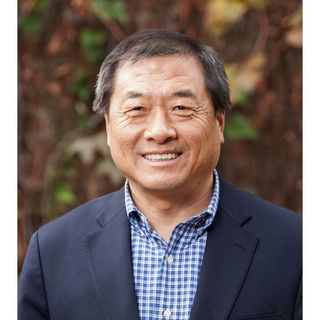Session 4 – Workshops
Posted in 2022 Roundtables
Following the opening provocation, three panels explored three challenges (4.1) Aligning General Education Diversity Learning Outcomes with Institutional DEI Priorities (4.2) Building Student Success through Gateway Courses, and (4.3) Connections between Evaluation of Teaching and Inclusive Excellence: Strategies for Departmental & Institutional Change
4.1 Aligning General Education Diversity Learning Outcomes with Institutional DEI Priorities
Video link: https://youtu.be/pnKF2SWredo
The key takeaway from this session: The implementation of a diversity requirement in a general education program will be most effective if it is aligned with other DEI initiatives and priorities–or even better, an institution-wide framework.
- At Pacific, they are developing an anti-racist framework for the whole university (all three campuses, college and professional schools) and bring this framework to a revision of the Diversity Requirement in the General Education program.
- Their revision is rooted in the idea that we have reached “the limits of the awareness-oriented DEI model,” as they are looking to create a diversity requirement that is rooted in social justice, critical consciousness, and centering systemic, structural and historical forces of marginalization and privilege. As a campus, they want to shift from “diversity awareness to dismantling systemic racism.”
- They also want to connect this work to reimagining the liberal arts and humanities –woven into the “everyday work” of anti-racism. In considering the reinvention of the humanities and liberal arts, we should consider the question of professionalization an equity issue. We need to introduce new nomenclatures that transgress our old binaries.
Panelists

Director of General Education,
University of the Pacific

Association Professor of English & Director of Pacific Humanities Scholars,
University of the Pacific

University of the Pacific

Student Body President,
University of the Pacific
4.2 Building Student Success through Gateway Courses
Video link: https://youtu.be/KlUmRDEpkGE
The key takeaway from this session: Redesign of gateway courses is only the beginning; developing a culture of redesign, asking questions about what will help students do better, and engaging in collective interpretation of course evaluations among faculty contributes to a larger culture of ensuring students’ success.
- Need to understand the variables impacting students, staff, and faculty in gateway course design process:
- Retention rates for all students
- Faculty time
- The intention and impact faculty want to have v. the impact students feel and how there may be a disconnect.
- The use of surveys and focus groups and gathering course data
- Be transparent about what the purpose of x, y , or z data collection method is for, what it will be used for, and a realistic actionable plan
- Gain the trust of students in demonstrating.
Panelists

Senior Director, Center for the Advancement of Teaching (CAT),
Florida International University

Associate Director, Gateway & STEM Partnerships,
Florida International University,
Slides and Resources
4.3 Connections between Evaluation of Teaching and Inclusive Excellence: Strategies for Departmental & Institutional change
Video link: https://youtu.be/7Eyj1dr698Y
The key takeaway from this session: This was a very interactive session with some great polling questions about teaching evaluations at our own campuses to get us all engaged.
- There was a good foundational explanation of teaching evaluations provided by Dea Greenhoot through the lens of TEval. TEval supports department-level efforts at transforming teaching evaluations within a framework of 7 dimensions of teaching and 3 sources of evidence, cognizant of the irony that the quality of evidence available for teaching evals wouldn’t meet most faculty’s standards in their research discipline. An example out of the University of Kansas of TEval in action is here.
- Iowa described a thoughtful series of conversations with admin, faculty, and students and the need to coordinate among the three channels of information.
- Student conversations supported the importance of mid-semester feedback and noted that understanding the role of the evaluations and writing impactful evaluations is a skill that needs to be developed and supported. A student participant commented that she approached the exact same questions on course evals differently depending on the context of the class. We don’t usually think about this nuance on the part of students yet it is strongly affecting their evals.
Panelists

Professor of Psychology and Director of the Center,
University of Kansas

Associate Dean for Undergraduate Education, College of Liberal Arts and Sciences,
University of Iowa

Director, Center for Teaching,
University of Iowa

Senior Director, Academic Support and Retention,
University of Iowa
